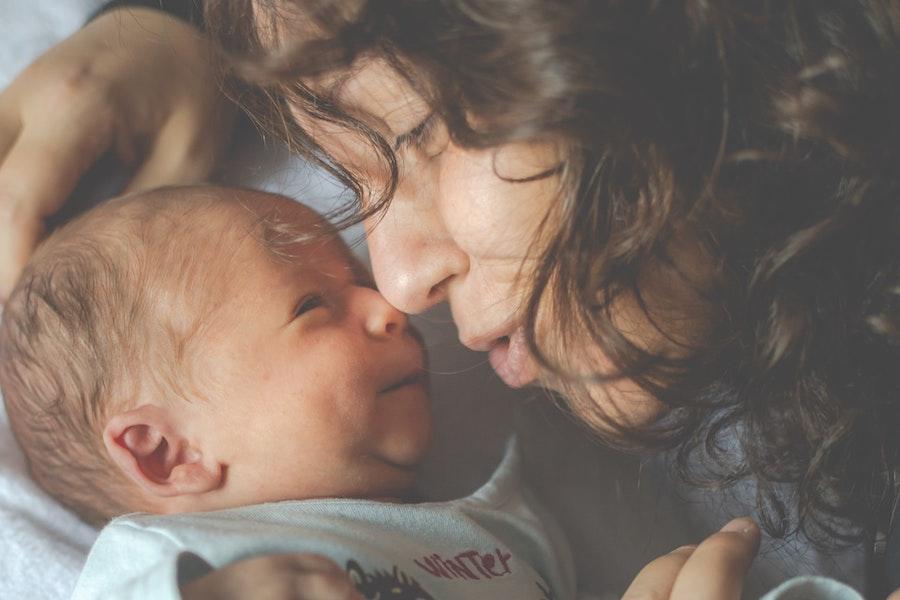Sometimes the routine of everyday life gets interrupted. Something happens, and it feels like nothing will ever be the same again. You meet a new partner, complete a course or move to a new place. You change, and suddenly you see life in a different way. But what is happening in your life now, as you are about to become a mother, is probably the biggest change of all.
For most of us, children aren’t a given in life until we have our first child. You may never have held a newborn before. There are no handbooks, trial runs or exams for preparing to become a parent. A new life begins to grow inside your body, consumes your thoughts and emotions, and starts a change in which the psychological adjustments go hand in hand with the physical ones.
Maybe you’re expecting a second or third child. You already know about pregnancy and you’re a pro at changing diapers, burping babies and calming them. It’s still a transformative change. You’re going to meet a whole new person. With insight and experience of how intense and meaningful this is.
We’re not used to having to take a back seat in our own lives—we’re used to driving. We want to be in control, gain knowledge and prepare ourselves before we can feel comfortable with any situation. But that doesn’t really work with parenting. However much you read, go to antenatal classes or monitor your baby’s growth, what’s most important is happening on another level. During pregnancy the physical changes are apparent. We need to eat the right food, rest and deal with issues that are not usually part of our everyday lives. At the same time a huge change is going on in your heart and head: a psychological process that is all about adjusting for childbirth and meeting your baby.
Inspiration from your own childhood
For many parents-to-be, their dreams become more intense and revolve around the monumental change that they face. Thoughts and memories from their own childhood become clearer and more vivid—perhaps because these are their foremost experience of being a child. The ability to empathize with what it’s like to be little is a good basis for responsive parenting. You can find inspiration from your own childhood for the kind of mother you want to be—or even the kind you don’t want to be.
Allowing your life to shape you can feel like an exercise in humility. And yet, everything that happens inside us during pregnancy has a purpose and a goal. All this thinking, feeling and worrying prepares us for meeting our baby on D-day. Ready to devote all our time and attention to our baby. Ready to accept her/his dependence and helplessness. To smile when we meet her/his gaze so that our baby is enveloped in the feeling of being welcome and important. The time before the birth is all about preparing to meet the baby and being emotionally ready to welcome the little person with whom we are going to share our life.
You might have another parent-to-be at your side—someone with their own process, which may, or may not, be like your own. We often end up out of synch as parents, at least in the beginning since conditions allow you to forget about parenting from time to time when you’re expecting a child as a co-parent. Questions at work often stop after the first round of congratulations. For lots of co-parents, the message from those around them is that they should support you, the mother-to-be who is going to give birth and breastfeed. Their own parenting is less noticeable, and their own concerns, expectations and joy may feel secondary to what happens to you, the mother. If you want to have a more shared process and prepare together, you need to focus on that. Be clear that this is something you’re doing together and are going to share with each other.
Perhaps you are both attuned, confident and predictable in your reactions. Maybe you’re suddenly more open with each other. Your usually lazy partner builds the changing table and gets ready for the big arrival by buying diapers and clothes. Or, your sensible partner is suddenly paralyzed and worries about what you eat or that you might trip as you walk on the sidewalk. How you both react right now says nothing about how things will be in the future. But you need to get to know the new sides of each other that parenthood awakens. What feels troubling and what feels joyful? How do you want things to be between you once the baby arrives? Putting into words how you feel and what you want from each other will help to make things easier.
If you’re lucky enough to have a partner, make sure you take care of him or her—because parenthood is an emotional journey and worry is an inevitable companion. None of us feel ready or completely confident when we meet our child. Oftentimes, we feel like children ourselves. That’s natural. Things do not need to be completely right from the beginning. Instead, becoming a parent is about getting to know another little person in a very special way and getting to know completely new sides of yourself and your partner. This means that we try something, make mistakes and try again. We get more chances to repair matters with our children than we do with anyone else in life. The journey you are about to embark on will offer you a wealth of experiences—experiences packed with more joy and more difficulties than any other journey. Welcome to your new life, so new in every sense of the word.
Sources:
- Kaplan, A. (red.) (2009). Lärobok för barnmorskor. (3., omarb. uppl.) Lund: Studentlitteratur.
